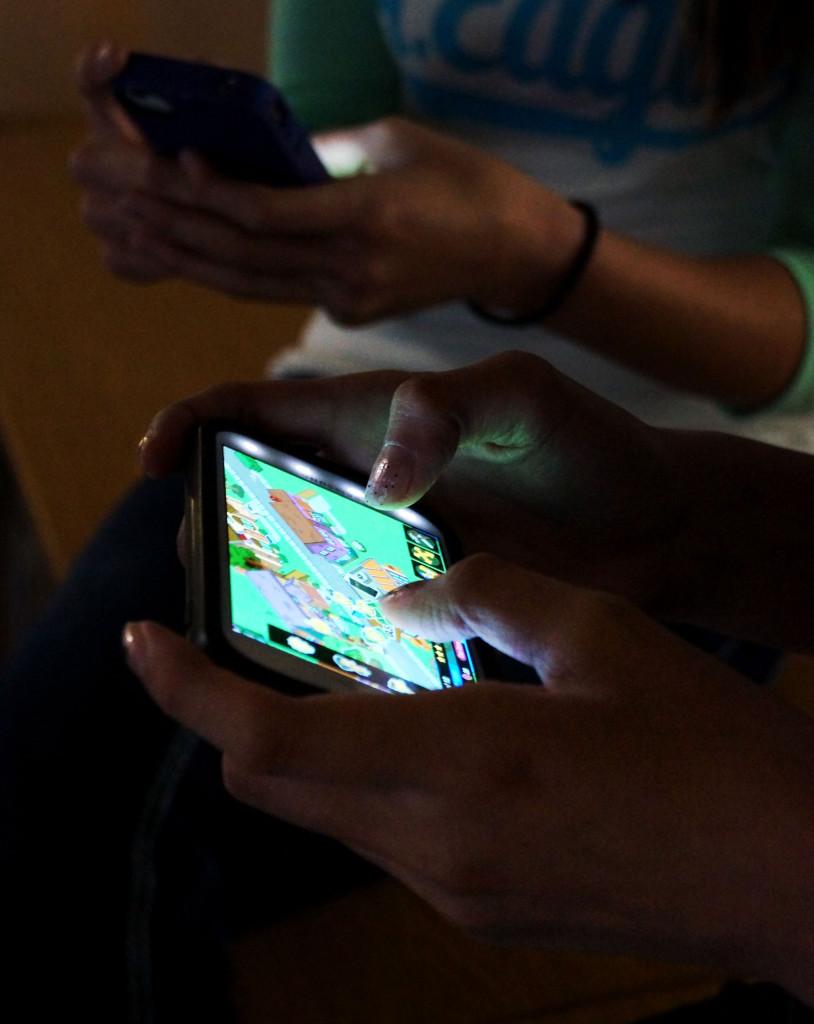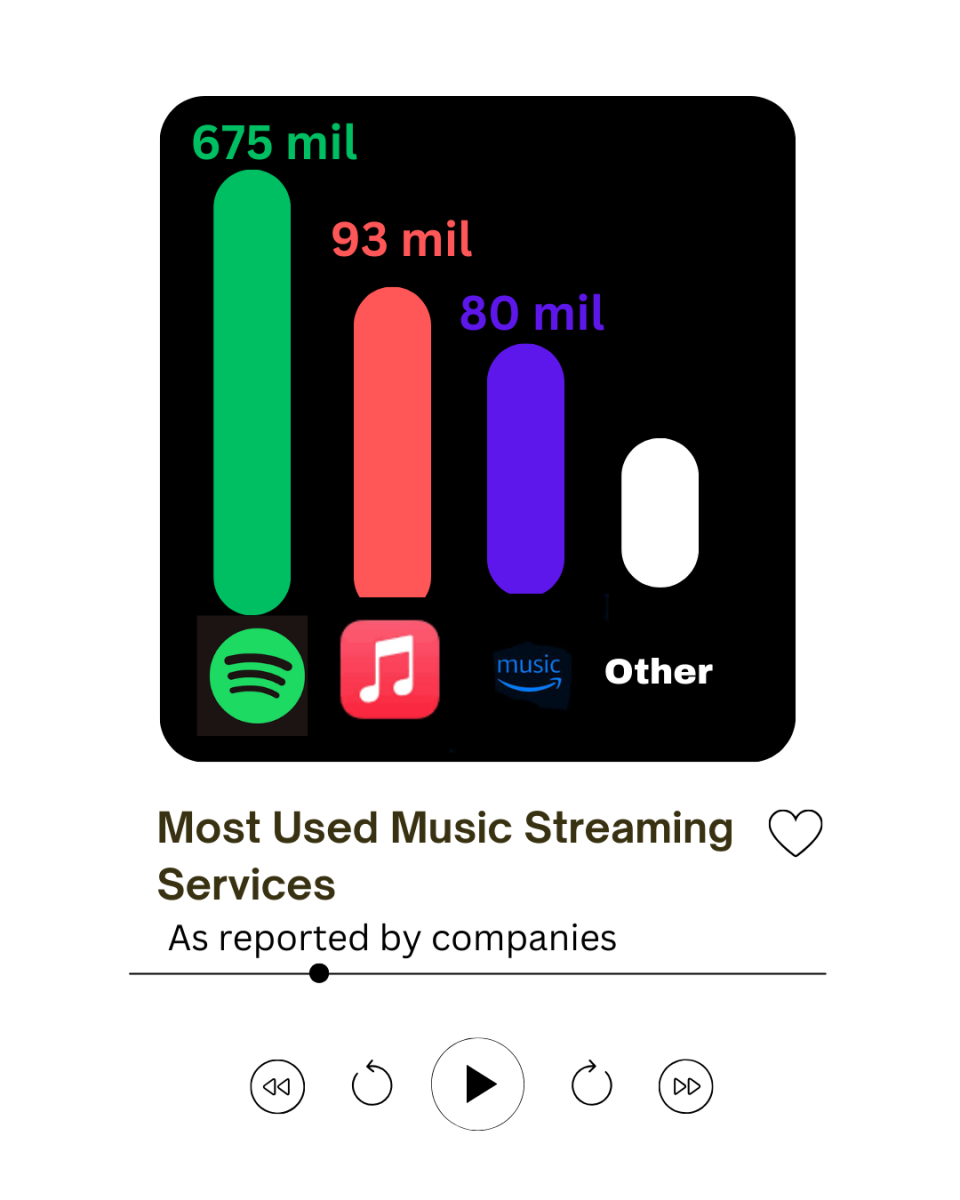Wake up. Check text messages. Check Facebook. Check Twitter. Check messages and other social media again before heading off to school.
Throughout the day, we absorb information like sports team scores, updated statuses, and text messages through our mobile devices all while trying to pay attention in class and meander through hallways. While our ever new-and-improved technology is impressive, the way we have incorporated it into our lives is a more exceptional feat. All of this newer, better, faster tech seems all-consuming and it seems impossible to escape its grasp, yet students have miraculously grown with it. Our handheld devices, though getting smaller and smaller every year, take up the majority of our social lives. They have become our entertainment, our newspapers, and our connection to other people. But has technology altered us to a fault?
There’s no disagreement among the Drops of Ink staff that having a cell phone in school is extremely helpful. From an assignment left at home to an actual emergency, a phone can become invaluable. Moreover, with cell phones now allowed during passing periods, it’s easier than ever to communicate with peers about homework and tests or to ask someone to borrow their gym uniform so you don’t fail that day. But while the newer cell phone regulations make it easier to correspond with our circles, it looks as though we have become addicted to those five minutes of cell phone usage in between classes. With approximately 35 minutes of passing-period time in a typical school day, a handful of text messages and one or two updates on social media sites is more than possible. However, it is rapidly becoming more than that, and Drops of Ink sees that smart phone users are on the brink of the obsessive.
With a few minutes before the end of class and after a teacher’s lesson has ended, it’s not at all surprising to see a majority of students on their phones. It makes sense, 10 minutes on our phones is better than five, but at what point is a line drawn? Students are already using phones before school, in the hallways, during class lectures, in the cafeteria, throughout study halls, and after school.
The way we speed off to our phones at the end of a class can almost be likened to a drug addict. Yet it’s not just in school that this could present a real problem. Excessive use of cell phones and other technology could actually be hindering us socially and mentally. Lack of sleep and having trouble properly conversing face-to-face with others are both signs that technology has affected us more than we know. While texting is a form of social communication, it’s a disembodied one, and we need more interaction than just reading people’s words.
The staff here at Drops of Ink knows that in the future, we aren’t going to be able to be on our phones all the time. Our careers and future schools are going to require us to be vigilant, and being on our phones constantly checking Twitter won’t be an option. The punishments and downfalls will be way more severe than getting a detention for using a phone during class. The influence of our ever-updated technology is new, powerful, and exciting, but we need to recognize when we are starting to become addicted. Sometimes it’s best not to singularly focus on our friends or favorite celebrities’ lives, but instead to focus on improving our own.










